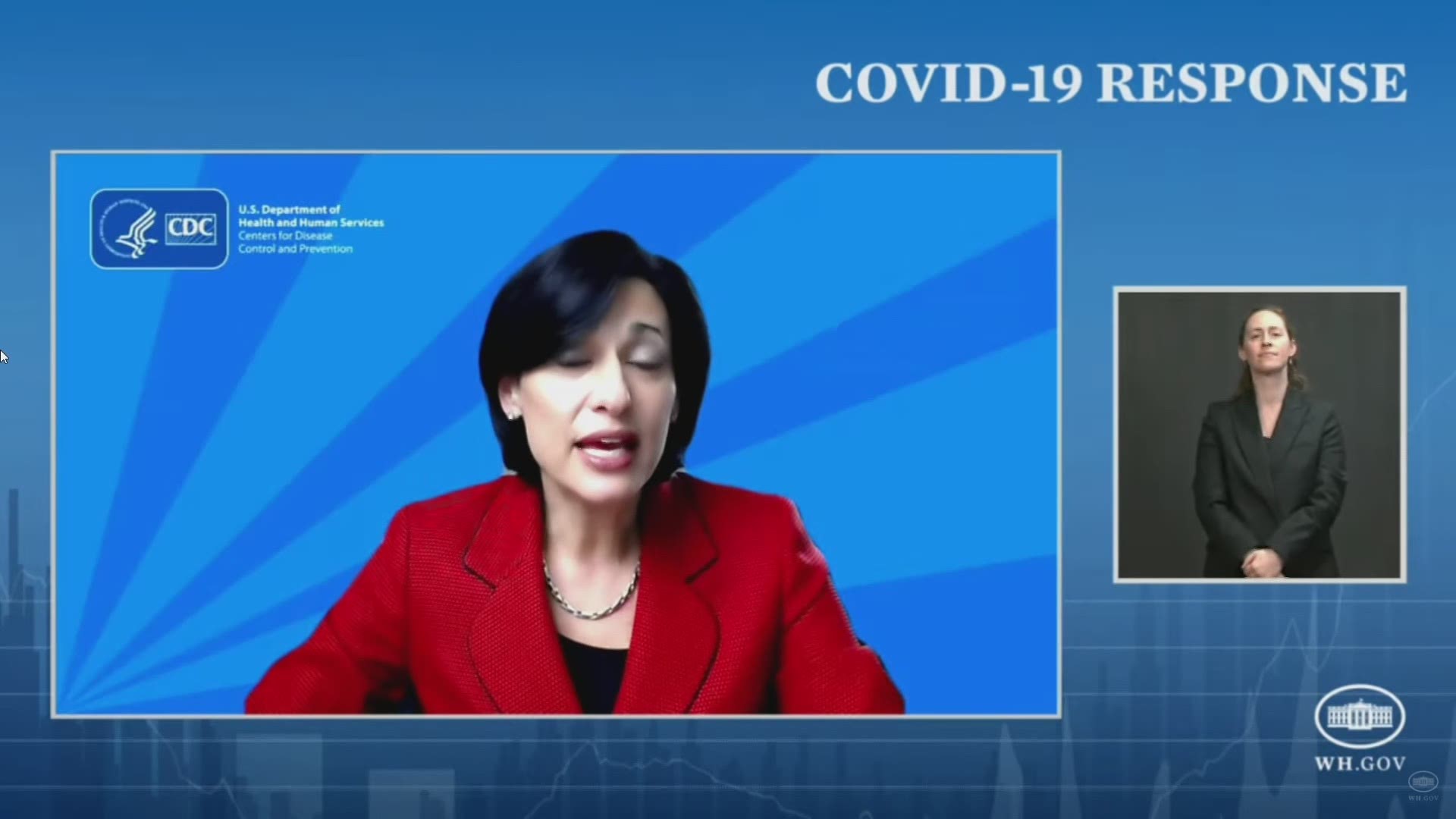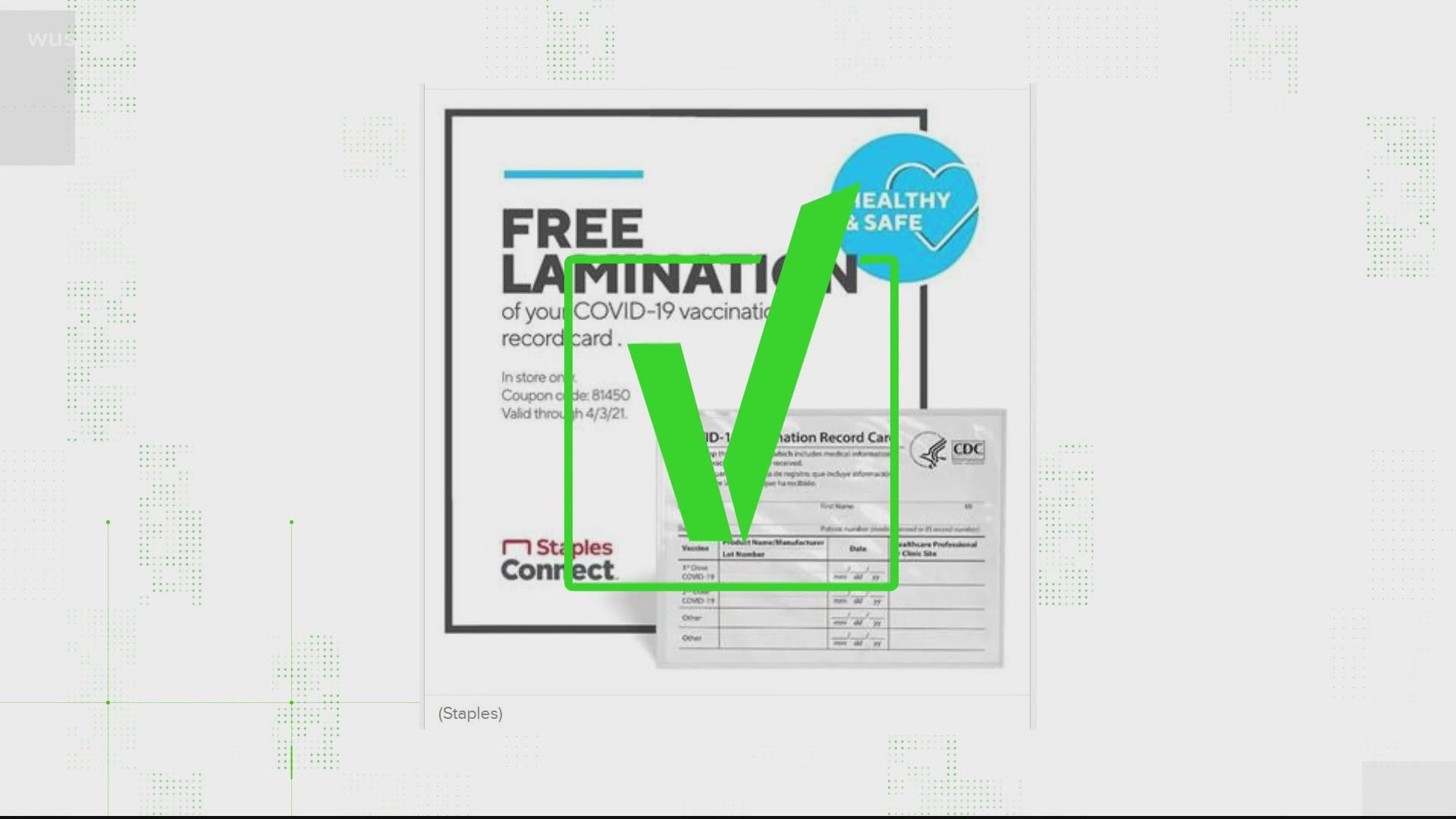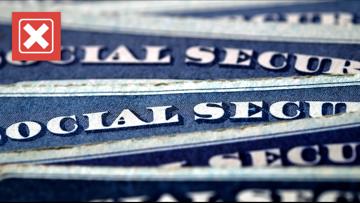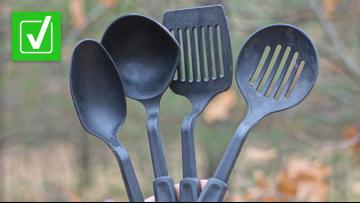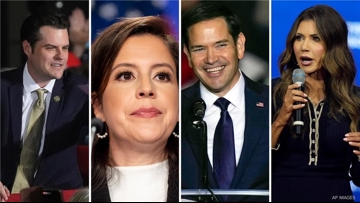WASHINGTON — The Centers for Disease Control recently updated their guidelines to say vaccinated people can remove their masks outdoors in crowds and inside in most situations. They say masks should still be worn in crowded indoor settings like public transit, hospitals, prisons and homeless shelters.
The order has opened up a dialogue online of people wondering how, in these new indoor situations, they can know that the people around them are vaccinated.
Currently in the US, the only physical kind of proof many of us have of vaccination is the little paper card we got from the vaccine administrator to remind us of our second shot. It's not an official government document, but there's a chance businesses could ask for it to prove your vaccination status. Here's everything you need to know about it:
Can vaccination cards be faked?
Yes, they can. The card is only a piece of paper with basic identification on it, followed by which batch of the vaccine you got and where. They were meant to be more of a reminder of vaccine appointments than a vaccine identifier, according to Dr. Amesh Adalja, a health policy expert from Johns Hopkins University.
But, he says if the person or business you're trying to prove vaccination to takes it a step further, a little piece of paper won’t cut it.
According to Dr. Adalja, the vaccination center where you got the shot submits your confirmation to a state vaccine database. If a company or a business cross-references your vaccine card with the database, they can easily find who has a fake card.
The penalties for forging a vaccine card, unlike the fake cards, are very real. A spokesperson for the FBI explained that faking a vaccine card requires someone to fake the HHS and CDC government seals. That action alone carries a maximum penalty of five years in prison.
What you should (and shouldn't) do with your vaccination card
The CDC is urging Americans to keep the card somewhere safe in case they need it in the future. They encourage taking a picture of the card as well, so you can at least keep it on your phone.
Do not post pictures of your card on social media. The FBI in February warned against sharing too much information online because "bad actors can use these images to steal your identify and commit fraud."
The FBI said some run the risk of the vaccine card image "being widely shared if the privacy settings on your preferred social platforms are not strict."
What should you do if you lose your vaccination card?
According to the CDC, there is no national organization that maintains vaccination records and the CDC doesn’t have your vaccine record either.
The CDC says if you lose your vaccination card or want any of your vaccination records you have two options:
You can contact the facility that administered the vaccine, or reach out to your local or state immunization information program to see if they can help locate your records. The CDC has a full list of state resources HERE.
Will there be a national vaccine passport in our future?
According to the White House, no.
The White House said in March that they were ruling out the creation of a national “vaccine passport” for Americans to verify their immunization status. They said it's up to the private sector to develop a system for people show they've been vaccinated. Some other countries are establishing national databases to allow vaccinated people to resume normal activities.
“We do know that there is a segment of the population that is concerned that the government will play too heavy-handed of a role in monitoring their vaccinations," said White House COVID-19 adviser Andy Slavitt in a March 29th press briefing. He said officials are worried that “it would discourage people” from getting vaccinated if the federal government was involved.
